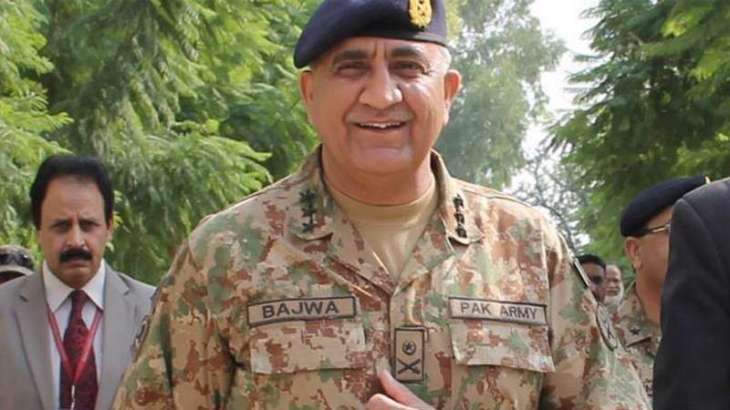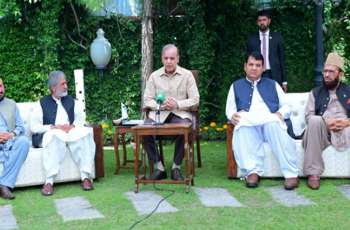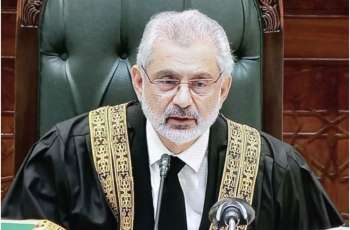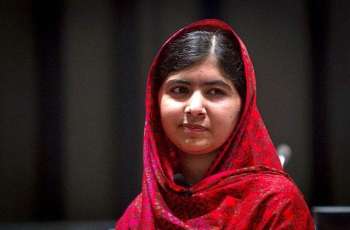Chief of Army Staff (COAS) General Qamar Javed Bajwa on Friday has said that there cannot be any sovereignty in the absence of economic progress and reiterated that countries cannot develop individually, it's region which develops
ISLAMABAD (Pakistan Point News / Online - 28th June, 2019) Chief of Army Staff (COAS) General Qamar Javed Bajwa on Friday has said that there cannot be any sovereignty in the absence of economic progress and reiterated that countries cannot develop individually, it's region which develops.He was addressing a National seminar on "Pakistan's Economy: Challenges and Way forward" organized by Institute of Strategic Studies, Research and Analysis (ISSRA) at National Defence University (NDU).
The top Army official said that such types of interactions are important to enable both government and other stakeholders in exchanging their views on issues of national importance. He endorsed undeniable linkage between security and economy as both directly complement each other.COAS said that he highlighted Pakistan's efforts for restoring regional peace that will lead to better trade connectivity. "For our region to develop we need to have greater regional connectivity amongst all neighbors," he added.
On current economic situation COAS said, "We are going through difficult economic situation due to fiscal mismanagement. We have been shying of taking difficult decisions. Armed Forces played their part by voluntarily foregoing annual increase in defence budget and this is not the only step we are taking for improvement of economy. We understand that government has gone for difficult but quintessential decisions for long term benefits and what we are doing is playing our part.
We all need to fulfill our responsibilities in this regard so that these difficult initiatives succeed. There are examples in recent past when other countries also confronted similar challenges and they came out successfully after taking difficult decisions. We shall also IA wade through these challenges".General Qamar said, "In difficult times no individual alone can succeed unless nation comes together unitedly. �It's time to be a nation'.
"On the other hand, panel of speakers included Dr. Salman Shah, Advisor to the Chief Minister of Punjab on Economic Affairs and Planning, Dr. Farrukh Iqbal, Dean and Director IBA.Dr. Abid Qaiyum Suleri, Executive Director, Sustainable Development Policy Institute (SDPI), Mr. Almas Haider, President Lahore Chamber of Commerce and Industry, Mr. Syed Muhammad Shabbar Zaidi, Chairman, FBR. Dr. Ashfaque Hasan Khan, Principal and Dean, School of Social Sciences & Humanities (NUST) chaired and moderated the seminar.
A large number economy experts, think tanks and representatives of business community attended the seminar.Chair in his introduction highlighted the linkage of economy and security. He quoted, Paul Kennedy - a British Historian specializing in the history of international relations and economics power " a nation s military strength rests on its economic strength" and Robert McNamara Former President of World Bank" Security means development and without development there is no security".
Therefore economy matter for security. If economy is weakened, the country s national security will weaken.The seminar dilated on ways of overcoming budget deficit, low tax collection base, circular debt, loss ridden public sector enterprises, fiscal indiscipline, undocumented economy, weak institutional capacity, low exports, meeting federal obligations within existing NFC arrangements and the perceptions surrounding the prevailing economic environment.Dr. Abdul Hafeez Shaikh, Advisor to Prime Minister on Finance, Revenue and Economic Affairs in his key note address dilated upon reasons which resulted into increasing these challenges. He counted perpetual security threats, inconsistent economic policies, poor economic discipline and lack of will to take difficult decisions in the past as major contributors to the economic situation the government is facing today.





